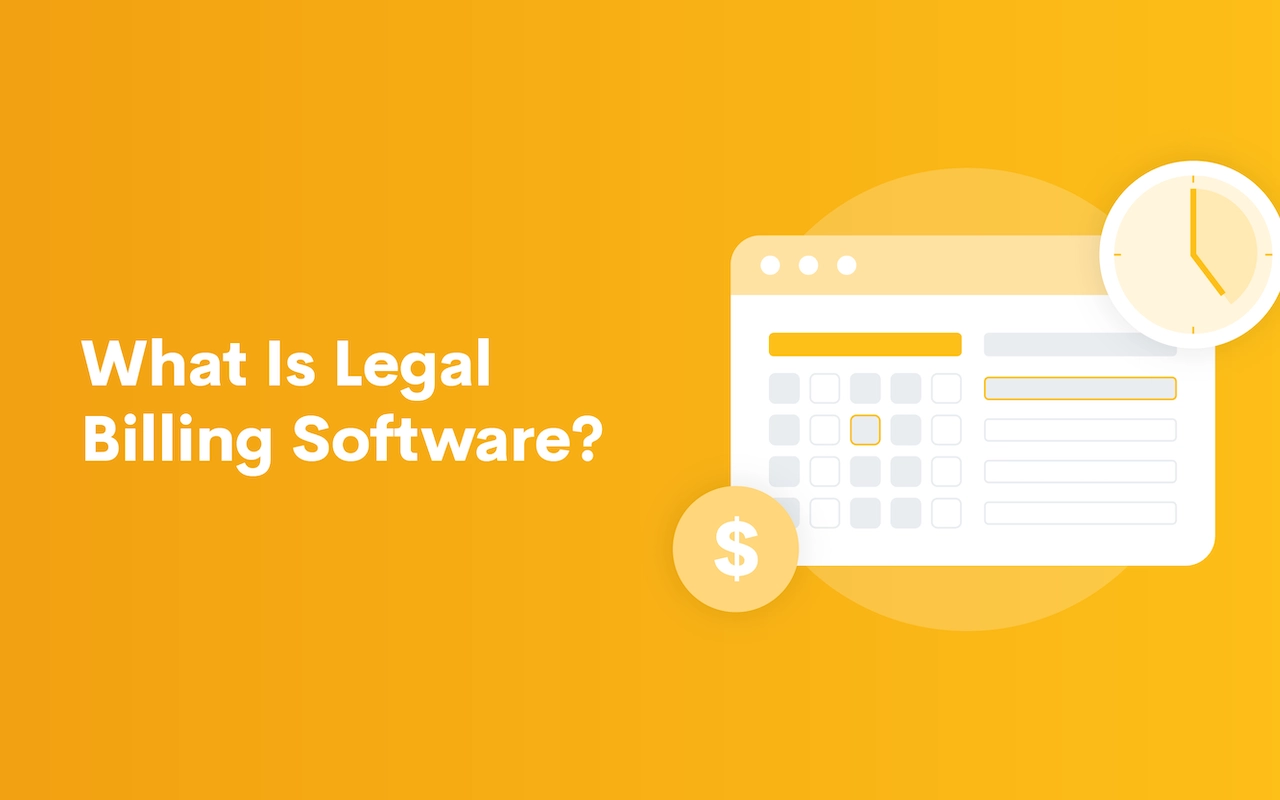What Is Legal Billing Software?

Legal billing software is a type of legal software designed specifically for law firms and legal professionals to manage and automate the process of billing clients for legal services. Legal billing software for small firms streamlines the billing workflow, making it easier, more efficient, and accurate.
Why is legal billing important?
Legal billing is important for several reasons, including revenue generation, client expectations, financial management, compliance, and more. Let’s take a look at these examples:
- Revenue generation: Billing clients for legal services is the primary way law firms generate revenue to ensure that lawyers are compensated for their time, expertise, and resources.
- Client expectations: Clear and accurate billing practices help manage client expectations regarding costs and fees, foster trust, and strengthen the attorney-client relationship.
- Financial management: Billing software helps track billable hours, expenses, and payments, providing insights into the firm's financial performance and cash flow.
- Compliance: Legal billing must comply with ethical rules and regulations, including accurately documenting billable hours, providing detailed invoices, and adhering to guidelines for trust accounting.
- Efficiency and productivity: Streamlining the billing process with automated tools reduces administrative burden for lawyers and staff, decreases the likelihood of errors, and ensures invoices are generated promptly.
- Dispute resolution: Detailed billing records serve as valuable documentation in case of disputes over fees or services rendered and can help resolve disagreements and avoid potential legal disputes with clients.
By automating the billing process, legal billing software helps law firms save time, reduce errors, and improve transparency in financial transactions with clients, making it an essential tool for managing the financial aspects of law practices.
What is a legal billing system?
A legal billing system is a software solution designed to facilitate the management of billing processes within law firms and legal departments. It automates various aspects of the billing workflow with time and billing software, expense tracking, invoicing, and client billing management. Simple legal billing software systems are tailored to meet the specific needs of legal professionals and often incorporate options to ensure compliance with ethical rules and regulations governing legal billing practices.
What are the functions of a successful legal billing system?
The best legal billing software for small firms must be straightforward, user-friendly, and efficient. What is needed for billing software? Here are some key features:
- Time tracking: Legal billing software allows lawyers to record the time spent on each client or case, which is crucial for accurately billing clients for billable hours.
- Expense tracking: Automated systems track and manage expenses related to a particular case or client, such as travel expenses, court fees, and other reimbursable costs.
- Invoicing: Billing software generates invoices based on recorded billable hours and expenses, often allows customization of invoice formats, and may support different billing structures (hourly rates, flat fees, contingency fees).
- Reporting: Billing software provides reports on billable hours, expenses, payments received, and outstanding balances to help lawyers and law firms analyze their financial performance.
- Client and matter management: Billing tools organize client information and case details, making it easier to associate billable activities with specific clients or matters.
- Integration: Some legal billing software can integrate with other legal practice management software, accounting software, or CRM systems to create a seamless workflow.
- Compliance and trust accounting: Legal billing software helps ensure compliance with legal accounting rules and regulations, including trust accounting for handling client funds in compliance with ethical guidelines.
When firms ask, “What software is used to keep track of billable hours?” The clear answer is software that will streamline the billing process, improve accuracy and efficiency, ensure compliance with regulatory requirements, and support the growth of the operation.
How much does it cost to buy a billing software for a law firm?
The cost of legal billing software can range from a few hundred dollars per month for small firms with basic needs to tens of thousands of dollars per year for larger firms with advanced functionality and customization requirements. It's essential for law firms and legal departments to carefully evaluate their needs and budget considerations when selecting legal billing software and to consider both the upfront costs and ongoing expenses associated with implementation and usage.
Why use legal software like Lawmatics?
While most legal professionals appreciate the importance of prompt and accurate billing, some still ask, “What does legal software do in relation to billing?”
Lawmatics’ law firm billing software automates the billing process — from invoice generation to billing, payment collection, and payment status. Recurrent invoicing, tracking billable hours, matter management, and reporting all work seamlessly together. All logged time entries are transferred directly into invoices as line items for on-demand legal billing and invoice generation.
To learn more about how to streamline your legal billing process with Lawmatics, request a demo today.


